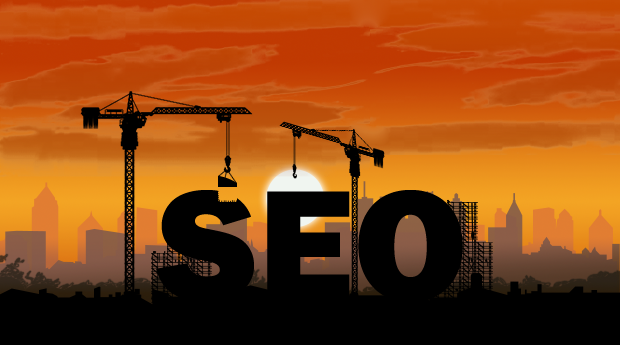Redefining SEO

In the early days of the Internet, Search Engine Optimization (before it even had a name) was simple. Getting your site indexed was more than half the battle, and that was easy. Submit your site to search engines, tell them what your company does, then sit back and wait for users to come find you.
But as search engine algorithms evolved and started crawling, analyzing, and indexing literally everything, a gap between well-intentioned marketers and those out to game the system became apparent.
While marketers with integrity were out building their brands, creating great content, and optimizing their site, quick-fix SEOs were link-building, cloaking pages, and adding hidden, keyword-stuffed text to theirs. While the good guys were trying to earn loyalty by offering value to users, black-hats were trying to syphon off domain authority that they hadn’t actually earned.
This gap has continued to widen, and we have always approached our SEO campaigns with a “user-first” mentality. We’re not interested in chasing algorithm updates or trying to capitalize on a short-term fad or take advantage of some flaw in the system. It’s always been our belief that if you create campaigns that add value to your audience, you will be successful.
Our long-term approach has served us well thus far, and going into 2014, we have again taken a long, hard look at everything we do. But after examining the industry landscape—what it looks like and, more importantly, where it’s headed—we’ve decided that the term Search Engine Optimization no longer accurately describes what we aspire to do. More and more, the term Search Engine Optimization reflects a mindset of elevating keywords, algorithms, and links over treating users the right way. It reflects a mindset where rankings and revenue are more important than branding and relationship building.
Smart marketers ditched that mindset a long time ago. Now it’s time to ditch the phrase that has been driving it for years.
The O Isn’t the Problem
The problem with the term “Search Engine Optimization” is that it’s rigid and outdated. We all know how fast digital moves, so how can a phrase invented in the 90s still be even remotely relevant in 2014?
SEO was born in a world where people sat down at their Gateway computer, searched for “black tennis shoes”, printed off what they found on their dot matrix printer, and headed to the mall. But the search engine has evolved, and so has the way we use it. Now we use Spotify, YouTube, reddit, Pinterest, and countless other searchable platforms to find content. We use special apps to find shopping deals for online retailers. We Google questions on our phones while we’re out in the real world and need to make a quick decision.
Optimizing for traditional search engines is so limiting and small in scope. We can do so much more if we’re willing to break free of SEO as we know it.
When One Door Closes
So we’re saying goodbye to Search Engine Optimization but saying hello to something much more important—something called SEO.
Confused? Let me explain.
- S = Solve Problems – Revisit the approach of our brand forefathers—back when all you had was your product or service, and the only way to gain a good reputation was by doing good work. Remember that people come to search engines looking for an answer to a question or problem. Help them solve it. Don’t try to rank for terms you have no business ranking for. Focus on providing value and making your users’ lives better. Then let Google figure out how to prioritize your content.
- E = Engage Users – During the dark ages of SEO, a lot of bad content was written. It was bad because it had no purpose. Marketers churned out articles for the sake of articles, littered them with keywords, and funneled them through article syndication services. Free yourself from the need to attack certain search terms with content, and instead think about the best way you can use content to engage your users. Understand their Buyer Journey, show them your personality, and solve their problems with a personal touch. It will go a lot further than bland, uninspiring articles (even if you were to trick Google into ranking them highly).
- O = Optimize Everything – The world isn’t run by AOL and Netscape anymore, so if you’re only optimizing for search engines, you’re missing out on a huge opportunity. We’re living in a multi-device, multi-channel world. Start optimizing for mobile. Optimize your social media. Optimize your PR efforts. The lines between these channels are more blurred than ever so tear the walls down now and you’ll be better off. And then keep going. Optimize your business. Find ways to better serve your customers, both online and off. Have a purpose. Help make the world a better place, even if it’s only by treating your customers and employees well, because a strong reputation will elevate all aspects of your business, including your search engine presence.
Intent Is Everything
In today’s world, where the definition of “search engine” is greyer than ever and keyword data is becoming more and more scarce, the usefulness of Search Engine Optimization has nearly run its course. But SEO is very much alive.
If you can find ways to Solve Problems, Engage Users, and Optimize Everything, you’ll set your brand up for success across the entire digital landscape and even offline. But the key is believing in the process—not seeing it as just a way to get rankings and revenue, but understanding the inherent value of improving the way you do business across the board.

Comments
Add A CommentGreat and elaborated article, thank you!
Thanks for sharing that article. Now I got more information about SEO.
Best Regards
Michael
great article, very useful
This is really amazing blog. I really like the theme and content. I had been facing an issue while commenting the blog but it seems a temporary issue. Hopefully it will works well next time. I had been working these day on some good blog on coupon codes and I think it will really help in it.
Thanks and enjoy!!
Great article and my take is that rather than referring to it all as Search Engine Optimization, I prefer to call it Internet Marketing. As a business it encompasses everything you do on the web to market your business; SEO, Social Media, PPC, Content Marketing, blogging.
In 2013 due to Google penguin and hummingbird algorithm the definition and process of doing completely change and has reverse so it is important to take step and decisions about your website by checking all factors
Hi Kimm, great article! When I read the heading my first thought was redefining to what? Here we go again. However after reading the article, I agree with your analogy. It makes sense. Thank you.